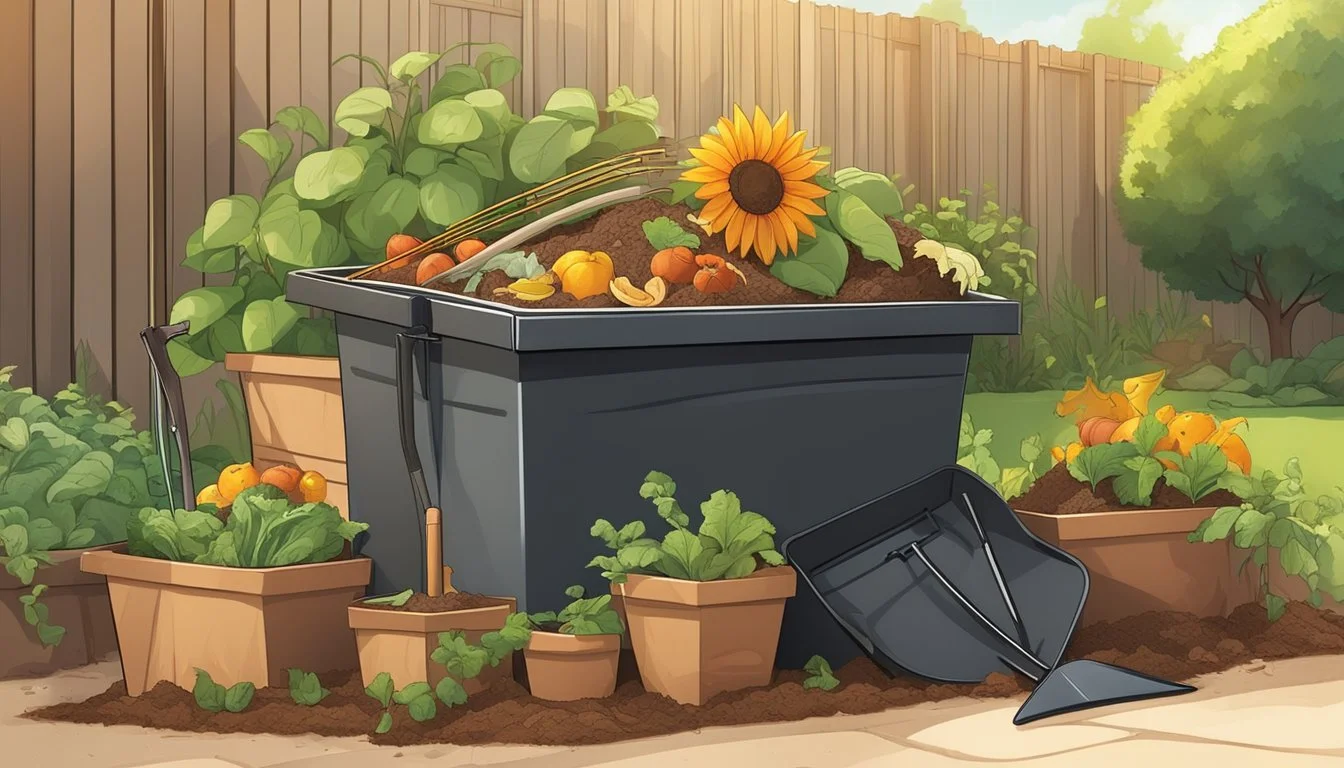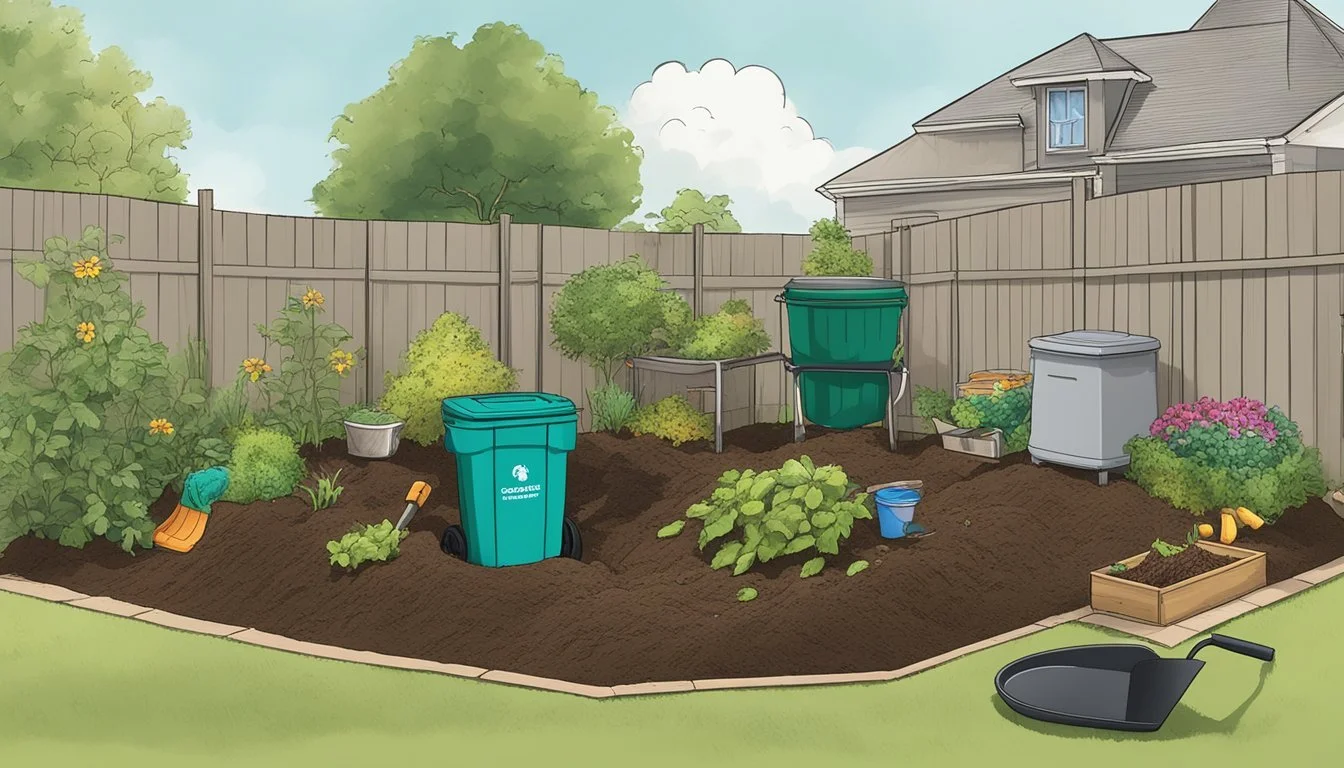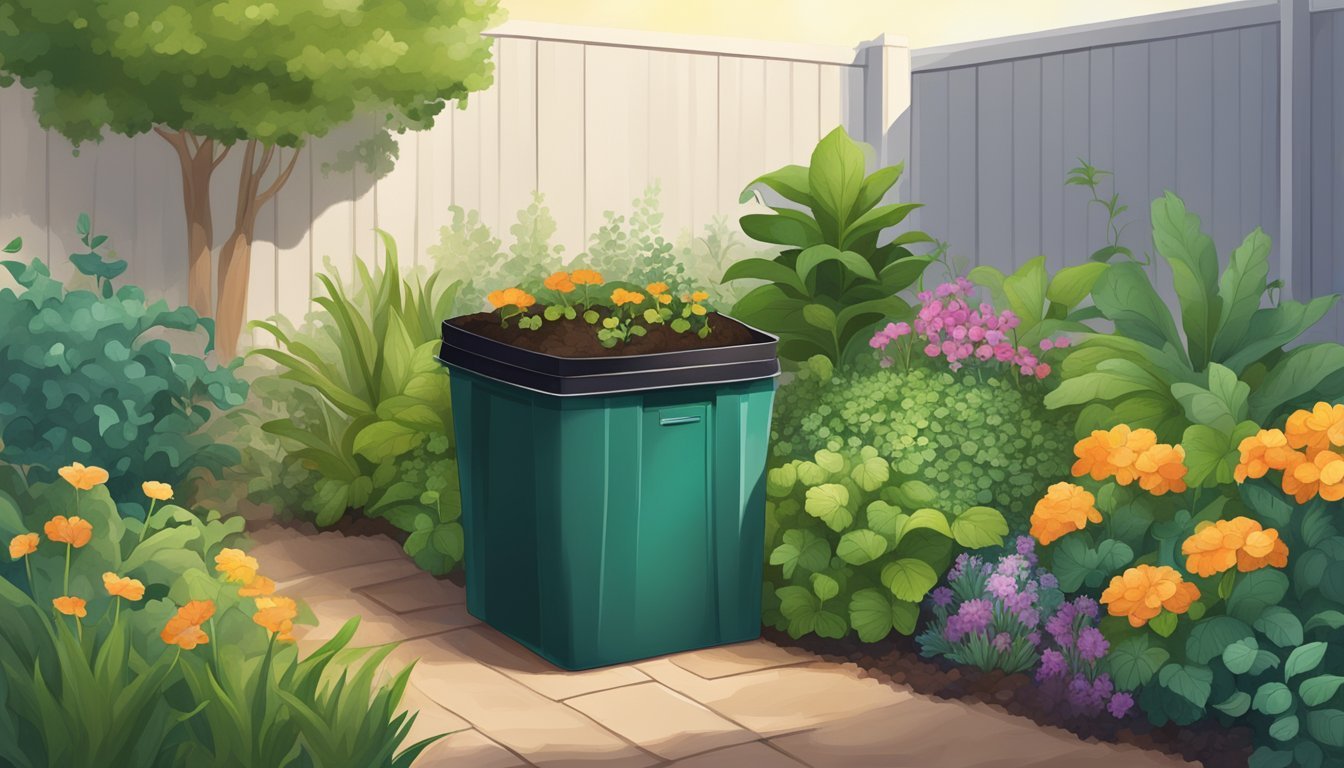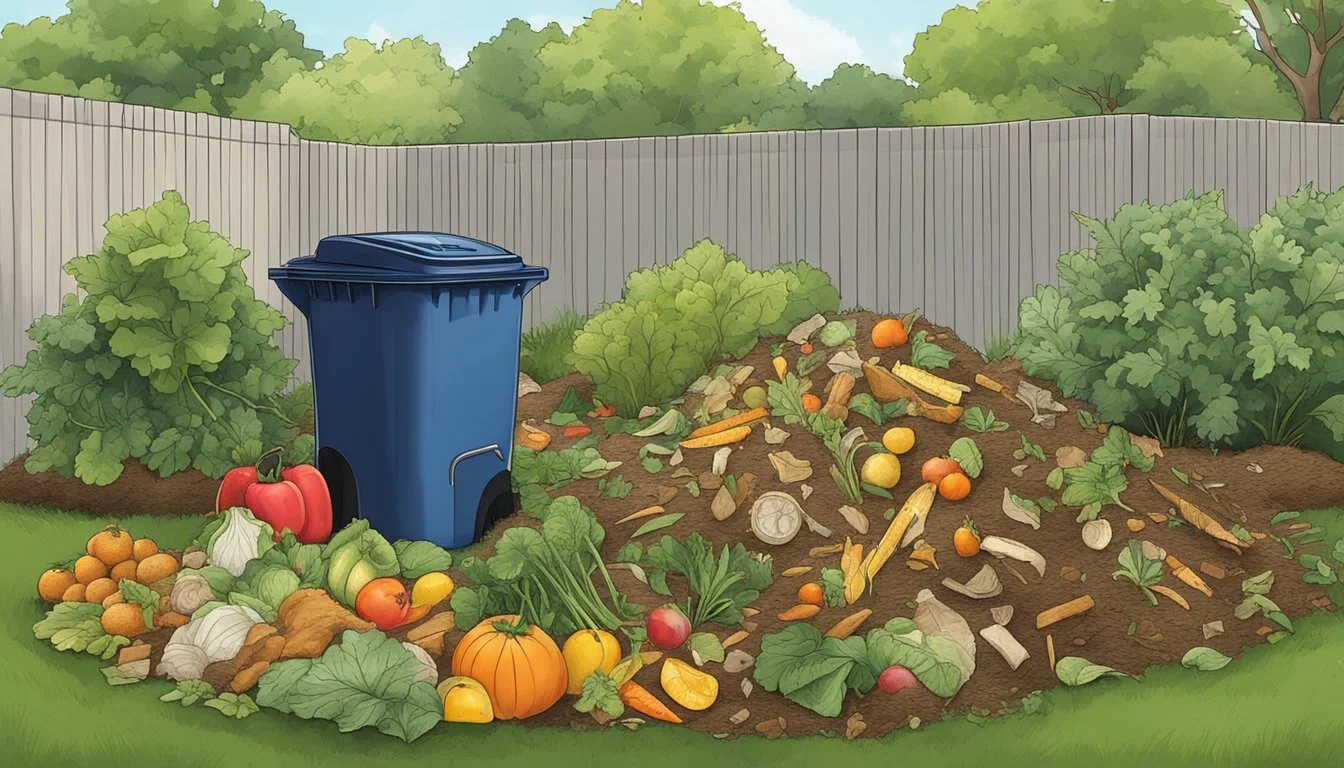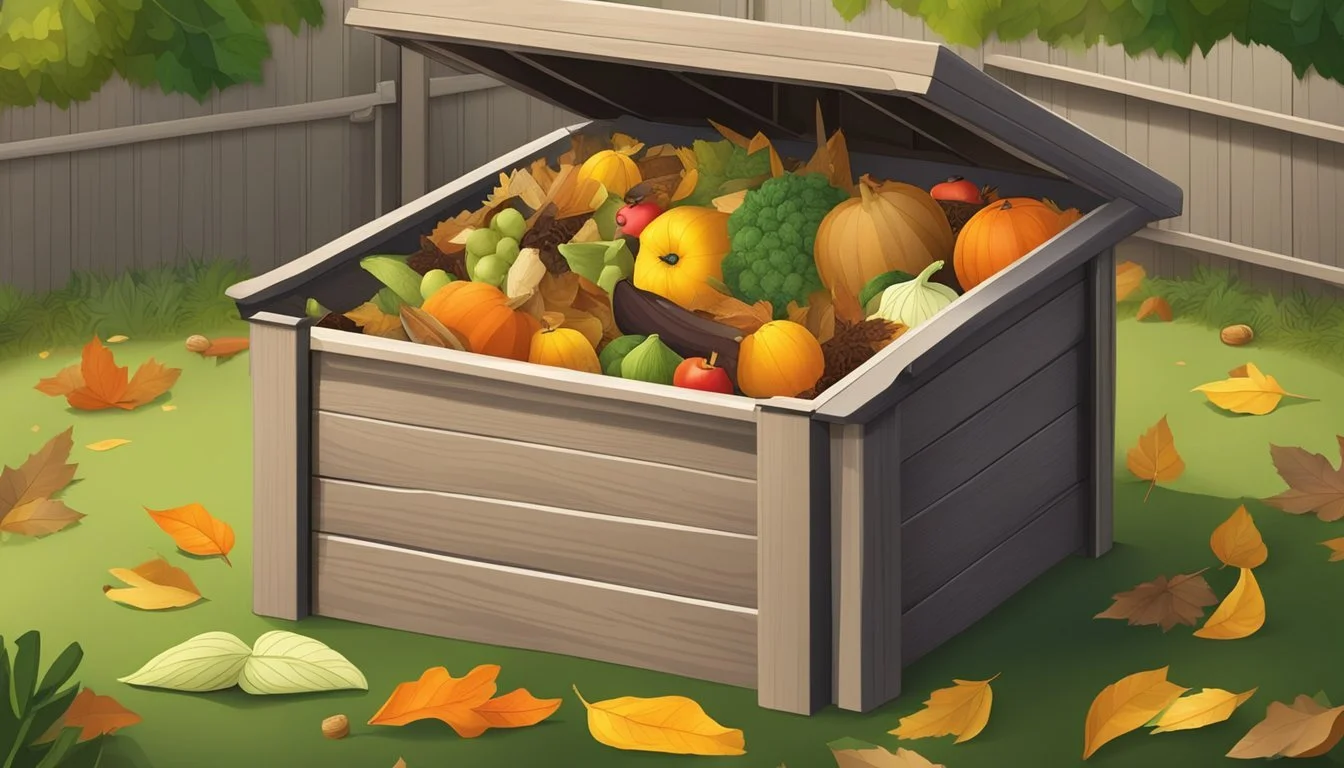Guide to Composting in Richardson, TX
Essential Tips for a Greener Community
Composting in Richardson, TX, presents an eco-friendly opportunity for residents to reduce waste and enrich soil. The city recognizes the dual benefits of diverting organic materials from landfills and producing valuable compost that can rejuvenate backyard gardens and landscaping. With a growing interest in sustainable living, individuals in Richardson are increasingly turning to composting as a way to contribute to environmental conservation and reduce their carbon footprint.
Local initiatives and educational resources make composting accessible and practical for Richardson dwellers. By leveraging available programs, like that of the Texas Commission on Environmental Quality, residents can learn about the composting process, including what materials are compostable and the steps involved in setting up and maintaining a compost system. For those seeking to start composting at home or participate in community composting, the city of Richardson provides guidance and support to navigate this green practice successfully.
In addition to individual efforts, the City of Richardson also contributes to a sustainable future by offering services like recycling and proper disposal options for organic waste. These efforts show the community's commitment to environmental stewardship and highlight a collective approach toward waste reduction, supporting a healthier, more sustainable Richardson, Texas.
Basics of Composting
Composting is the process where organic matter decomposes naturally, converting waste into a nutrient-rich soil additive. This process relies on the presence of microorganisms that break down materials, transforming them into compost. The key components for successful composting include balancing carbon-rich materials, often referred to as 'browns', and nitrogen-rich materials, known as 'greens'.
Ideal Composting Ingredients:
Browns: Leaves, branches, twigs
Greens: Vegetable waste, fruit scraps, coffee grounds
It is crucial to maintain an optimal balance between these components; a recommended ratio is about 3 parts browns to 1 part greens.
Factors Influential in the Composting Process:
Carbon: Provides energy for microorganisms. Found in 'browns'.
Nitrogen: Assists with the growth and reproduction of microorganisms. Found in 'greens'.
Oxygen: Necessary for microorganisms to thrive and aids in the decomposition process.
Moisture: Should be regulated to keep the compost damp without being overly wet.
Aeration is important as well, which can be achieved by turning the pile regularly to prevent anaerobic conditions. Richardson, Texas, gardeners can greatly benefit from composting by reducing kitchen and yard waste and improving soil health. Additionally, it's an effective way to contribute positively to the environment by minimizing the amount of waste sent to landfills.
Benefits of Composting
Composting provides multiple advantages, from reducing the burden on landfills to enriching garden soil. It represents a positive step towards sustainable waste management and horticulture practices.
Environmental Benefits
Composting greatly reduces the amount of organic waste that ends up in landfills. This is crucial because organic waste in landfills decomposes anaerobically, producing methane, a potent greenhouse gas. By composting, individuals contribute to waste reduction and methane emission control, thus lessening their environmental impact. Additionally, composting supports the creation of a nutrient-rich material that improves soil health without the use of chemical fertilizers, which can be harmful to the ecosystem.
Advantages for Gardening
Soil treated with compost is more fertile and retains moisture better, which can lead to healthier plants and increased yields in gardening and agriculture. Compost provides essential nutrients, promoting strong root development and robust growth. Furthermore, the use of compost can improve soil structure and aeration, benefiting not just individual gardens but also larger-scale horticulture projects.
Cost Savings
Composting at home can lead to significant cost savings for households and communities alike. By turning organic waste into natural fertilizer, gardeners can save money on soil amendments and chemical fertilizers. Municipalities also save on waste collection and landfill space, which can be a substantial economic advantage. By engaging in this practice, everyone contributes to a more sustainable approach to waste management and resource utilization.
Setting Up Your Compost System
Composting is an effective method to recycle organic waste into nutrient-rich soil, which can benefit both a gardener's backyard piles and indoor plants. Proper setup is crucial for a successful composting operation in Richardson, TX.
Choosing a Location
When setting up a compost system, selecting the right location is of paramount importance. The site should be on well-drained soil to prevent waterlogging, with partial shade to help maintain adequate moisture without the compost pile drying out. Accessibility year-round is also essential, ensuring that one can add to and turn the pile even in winter.
Bin and Pile Options
Compost bins come in various designs: from covered bins that help in controlling moisture and preventing animals from getting into the compost, to multi-bin systems that allow for more efficient decomposition as compost matures at different stages. Those wishing to start home composting in Richardson can consider a simple pile in their backyard if space permits, turning it periodically to "turn" the compost and aid in the process. Covered bins can be particularly beneficial in areas with lots of wildlife or domestic animals prone to exploring.
Composting Ingredients
When starting a compost pile in Richardson, TX, it's essential to understand the balance of materials needed. This balance includes "greens" that provide nitrogen, "browns" that furnish carbon, and the right amount of water to maintain moisture for decomposition.
Greens and Browns
Greens typically consist of:
Food Scraps: Fruit and vegetable scraps add valuable nutrients.
Grass Clippings: They decompose quickly and add nitrogen.
Coffee Grounds: A good source of nitrogen and a favorite for worms.
Browns are materials like:
Leaves: They should be mixed in to add carbon and structure.
Twigs: Break down slowly but give the compost pile aeration.
Shredded Paper: Adds carbon, but it should be non-glossy and ink-free.
To create an efficient compost pile, one should alternate layers of greens and browns, ensuring each layer is moistened as it is added. A general guideline to follow is a ratio of three parts browns to one part greens by volume.
Items to Avoid
Not all organic waste is suitable for composting. Hazardous items include:
Meat: Attracts pests and can cause odor problems.
Bones: They do not break down easily in a backyard compost setting.
Fats and Oils: These can also attract pests and slow down the composting process.
Plastic: Non-biodegradable and contaminates the compost.
Keeping these items out of your compost ensures that it remains a nutrient-rich resource for your garden without attracting pests or producing an unpleasant odor. Properly maintaining the compost pile by regular turning and balancing ingredients will speed up decomposition and produce successful results.
Composting Methods
In Richardson, TX, residents can choose between traditional composting methods or try their hand at worm composting. Each approach has its benefits for transforming organic waste into valuable soil amendments.
Traditional Composting
Traditional composting is an aerobic process where a compost pile is created from a balanced mix of carbon-rich and nitrogen-rich materials. In Richardson, the key to success lies in maintaining the pile at the right temperature, ideally between 135 to 160 degrees Fahrenheit, which helps to speed up the decomposition process. Residents should turn their compost regularly to introduce oxygen and ensure even breakdown of materials. A properly managed compost pile should not emit unpleasant odors and will produce a dark, crumbly soil conditioner after several months.
Essentials for Traditional Composting:
Balance of green (nitrogen-rich) and brown (carbon-rich) materials
Regular aeration by turning the pile
Monitoring for optimal temperatures for decomposition
Worm Composting
Alternatively known as vermicomposting, worm composting uses earthworms, typically red wigglers, to break down organic waste. This method is ideal for Richardson residents with limited outdoor space, as it can be done indoors in bins. Vermicomposting generates nutrient-rich castings, an excellent amendment for improving soil structure and fertility.
Guide to Vermicomposting:
Maintain a bin stocked with bedding, such as shredded paper or cardboard.
Add kitchen scraps to feed the earthworms without overloading the bin.
Keep the environment moist but not overly wet for optimal worm activity.
Maintenance and Usage
Effective compost maintenance and proper utilization are pivotal for enhancing garden soil and overall landscape health in Richardson, TX. The section focuses on routine monitoring and the beneficial use of finished compost in yard care.
Monitoring Compost Progress
Temperature: A compost pile's temperature reflects its microbial activity; it should feel warm to the touch. A thermophilic, or hot composting phase, typically denotes healthy decomposition.
Moisture: Compost should have the dampness of a wrung-out sponge. If the compost is too dry, one should add water, but beware of overwatering as it can lead to anaerobic conditions and odors.
Smell: A properly maintained compost pile will have a pleasant, earthy smell. Any pungent odors may indicate that the pile is too wet or needs more aeration.
Visual Cues: Over time, the compost's color turns into a dark, crumbly texture akin to rich garden soil — a sign that it is nearly ready.
Utilizing Finished Compost
Incorporation into Garden Soil: They can integrate approximately ¼ to ½ inch of fine compost into the garden soil to promote fertility and structure. This application is particularly beneficial at the start of the planting season.
As Mulch: Applying finished compost around plants makes for an excellent mulch. This technique conserves moisture, suppresses weeds, and gradually adds nutrients to the soil, thereby embracing the 'make mulch, not trash' concept.
Lawn Care: Homeowners can also utilize compost as a lawn dressing to enhance grass health and vitality. They should evenly spread a thin layer across the yard to encourage lush, green growth without depending on synthetic fertilizers.
Community Involvement and Policies
In Richardson, TX, community involvement in waste management is emphasized through local ordinances and city-led environmental initiatives. These policies are specifically designed to involve residents in sustainable practices like recycling, composting, and proper waste disposal.
Local Ordinances
The City of Richardson enforces ordinances that require residents to use compostable yard bags for lawn waste, ensuring that materials like leaves, grass clippings, and small limbs are suitable for composting. On National Learn About Composting Day, these ordinances are highlighted to educate residents about their role in maintaining a healthy water system and supporting mulching programs.
City Initiatives
Richardson's environmental efforts include the City's partnership with Texas Pure, providing mulch and compost for residents' use. Furthermore, brush and bulky item collection (BABIC) services arrange for the pickup of larger waste, such as cut brush, which is then processed at the Texas Pure facility. This approach contributes to the local recycling and waste management system, reducing landfill use and supporting the city's green initiatives.
Advanced Techniques and Considerations
In Richardson, TX, mastering composting involves understanding the intricate balance of elements and addressing specific challenges as they arise. Commercial products can enhance the composting process, and endorsements from local organizations may guide residents toward best practices.
Troubleshooting
When compost piles do not break down materials effectively, it often indicates an imbalance of greens and browns—the nitrogen-rich and carbon-rich materials, respectively. One should monitor the moisture level to ensure it’s akin to a wrung-out sponge; too wet or too dry hampers the decomposition process. An odor often signifies excess nitrogen, and can be remedied by adding more browns like leaves or straw to the mix. Inversely, if the pile is too dry, adding greens like fruit and vegetable scraps introduces necessary moisture. Residents may seek advice from local experts like those at The Compost Corner, who educate on composting techniques.
Commercial Products and Endorsements
The market offers a plethora of commercial products designed to aid in composting, from specialized bins to accelerators that claim to speed up the decomposition process. One should scrutinize such products and seek vetted endorsements before purchasing. The Texas Commission on Environmental Quality provides resources and guidance on composting, and products that align with their recommendations can generally be trusted for use in Richardson's gardens. For those desiring to enhance their soil with composted manure, initiatives like the Composted Manure Incentive Project may be of interest. Local seminars, such as those hosted by the City of Richardson, often feature expert recommendations on effective products suitable for the climate and soil type found in the region.
Education and Outreach
In Richardson, Texas, education and outreach efforts focus on empowering residents and organizations with the knowledge and skills needed to effectively compost. Through hands-on workshops and comprehensive resources, individuals learn to transform organic waste into valuable mulch, aligning with the 'Make Mulch, Not Trash' initiative and supporting a sustainable future.
Workshops and Events
The city of Richardson provides a variety of workshops and events aimed at enhancing composting skills among community members. For example, during National Learn About Composting Day, residents can participate in engaging seminars and practical demonstrations led by experts from Texas A&M University (TAMU). These events offer firsthand experience in creating and maintaining a successful composting system.
Upcoming Composting Workshops:
Basics of Composting: Learn how to start a compost pile.
Advanced Techniques: For experienced composters looking to optimize their process.
Key Annual Events:
Richardson Compost Fair: Includes exhibits, Q&A sessions with TAMU experts, and interactive activities.
Community Compost Exchange: An event where residents swap composting tips and leftover compostable materials.
Resources for Residents
Richardson's commitment to sustainability is further supported by a robust array of resources for residents. The local government provides informative guides and fact sheets, offering step-by-step instructions on how to effectively turn kitchen scraps into nourishing soil. These materials are tailored to meet the needs of both novice and seasoned composters.
Available Composting Resources:
Beginner's Guide to Composting: A starter kit for new composters covering the basics.
Compost Troubleshooting Guide: Tips for addressing common composting issues.
Online Tools and Support:
'Babic' Backyard Basics: An online platform featuring tutorials and composting best practices.
Compost Corner Hotline: A dedicated phone line where residents can get answers to their composting questions.
Accessible Composting
Composting initiatives in Richardson, TX focus on inclusivity, ensuring residents with disabilities have the opportunities to participate. The City of Richardson offers tailored options to accommodate the needs of all citizens wishing to contribute to environmental sustainability through composting.
Options for Residents with Disabilities
Individuals with disabilities living in Richardson have accessible composting solutions designed with their needs in mind. The City of Richardson partners with Texas Pure to provide regional mulch and compost at discounted rates for residents, including those within the disability community. Compost bins are designed to be easy to use for people with a range of mobility and strength.
Furthermore, Texas A&M University's Don't Bag It program includes educational resources on composting that can be helpful to citizens in Richardson, including those with disabilities, to better understand and participate in composting practices. The information is provided in a variety of formats that are accessible to all.
The local accessibility to composting for residents with disabilities in Richardson reflects Texas' broader commitment to environmental stewardship and community inclusion. It ensures that the benefits of composting, such as waste reduction and soil health enhancement, are achievable for all community members, regardless of their physical abilities.
Sustainable Yard Care
In Richardson, Texas, integrating composting into yard maintenance is a practical strategy for managing yard debris and enriching the soil for a healthier lawn and garden.
Integrating Composting into Yard Maintenance
Composting offers a method to transform organic yard waste into valuable nutrients for a lawn or garden. Residents can incorporate a compost pile or composting bin that takes advantage of the abundant sunshine in Texas. For effective composting, the balance of green material, such as vegetable scraps and grass clippings, and brown material, like dried leaves, sticks, and cardboard, is crucial.
Green materials provide nitrogen.
Brown materials supply carbon.
Citizens should aim for about 2-3 times more brown than green materials.
To maintain a composting area, residents should:
Select a suitable, sunny spot in the yard.
Alternate layers of green and brown materials.
Maintain moisture by sprinkling water to keep the compost damp.
Turn the pile regularly to aid decomposition.
Through composting, residents can reduce the amount of yard debris sent to landfills and produce a rich soil amendment to enhance the vitality of both their lawn and garden. Furthermore, the City of Richardson encourages the use of compost by providing access to quality mulch and compost which can be leveraged as a natural fertilizer, supporting sustainable yard care practices within the community.
Support and Guidance
In Richardson, TX, residents seeking assistance with composting can tap into a wealth of local resources designed for education and support. The focus is to enable individuals to compost confidently with access to the right information and materials.
Contact Information and Expertise
Residents can find comprehensive information on composting through the Texas Commission on Environmental Quality, which provides a guide to yard care. This resource is particularly useful for homeowners looking to learn about mulching and composting.
For more localized support, individuals can contact the City of Richardson's partnership with Texas Pure. This initiative offers regional mulch and compost at a discounted price for residents of member cities. Richardson locals can purchase compost and benefit from this program, ensuring they have the high-quality materials necessary for effective composting.
The City of Richardson also offers a program called Make Mulch, Not Trash, reflecting their commitment to reduce waste and support composting initiatives. Residents can learn how to contribute to the community’s sustainability efforts.
Those looking for a more community-centric approach can check out The Compost Corner on Facebook. It's an educational platform where Richardson inhabitants can stay updated on all things compost and connect with local experts who are eager to share their knowledge.
With Richardson's variety of resources and expert guidance, individuals are well-equipped to start or enhance their composting endeavors.

